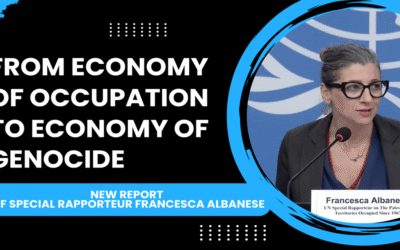At least 38 people were killed and many more injured in a brutal attack on a Catholic church in eastern Democratic Republic of Congo (DRC) on July 27, 2025. The assault took place in the village of Mukondi, located in the restive North Kivu province, where armed rebels stormed the church during Sunday mass, opening fire on worshippers and setting off explosives. Witnesses described scenes of chaos and terror as congregants tried to flee, with many trapped inside the burning building. The attack has been attributed to the Allied Democratic Forces (ADF), a rebel group with alleged ties to the Islamic State (IS), which has been active in the region for years.

Source: CNN
Who Are the ADF and What Do They Want?
The ADF, originally formed in Uganda in the 1990s, has been operating in eastern DRC for decades, carrying out frequent attacks against civilians, government forces, and religious institutions. The group has pledged allegiance to IS, which has claimed responsibility for several ADF-led massacres in recent years. While the ADF’s exact motives remain complex, analysts suggest the group seeks to establish an Islamist caliphate in the region, exploiting the DRC’s weak governance and ethnic tensions. Their attacks often target Christian communities, further destabilizing an area already ravaged by decades of conflict.
You May Like To Read: France to Become First G7 Nation to Recognize Palestinian State — Macron’s Diplomatic Leap
Escalating Violence in Eastern Congo
Eastern DRC has long been a hotspot for violence, with numerous armed groups vying for control over land, minerals, and political influence. The ADF has intensified its attacks in recent years, with this latest assault being one of the deadliest against a religious institution. The region is rich in natural resources, including gold and coltan, but the wealth has fueled conflict rather than development. The Congolese military, supported by UN peacekeepers and regional forces, has struggled to contain the violence, leaving civilians vulnerable to repeated atrocities.
Regional and International Reactions
The attack has drawn widespread condemnation from global leaders and religious organizations. The Vatican expressed its “deep sorrow” over the massacre, while the African Union called for urgent action to protect civilians. The United Nations has warned of a worsening humanitarian crisis, with millions displaced due to ongoing violence. However, international efforts to stabilize the region have had limited success, as armed groups continue to operate with impunity.
What This Means for the Future of the DRC
The attack underscores the dire security situation in eastern DRC, where civilians bear the brunt of relentless violence. With the ADF showing no signs of retreating, there are fears of further attacks, possibly escalating into broader regional conflict. The Congolese government faces mounting pressure to strengthen security and address the root causes of the insurgency, including poverty and political marginalization. Until then, the people of eastern DRC remain caught in a cycle of bloodshed, with little hope for peace in the near future.
As the world reacts to this tragedy, the international community must decide whether to step up its intervention or risk another prolonged conflict in one of Africa’s most volatile regions. For now, the victims of Mukondi join the countless others who have suffered in a war that shows no end.
You May Like To Read: Weekly Roundup | Palestine-Israel Conflict | Genocide & Apartheid
Expanding Influence of Islamic State
The Islamic State (IS) is expanding its influence in Africa through local affiliates, exploiting regional instability, weak governance, and sectarian tensions. In the Democratic Republic of Congo (DRC), IS-linked groups like the Allied Democratic Forces (ADF) have carried out brutal attacks, including a recent massacre at a Catholic church in North Kivu that killed at least 38 worshippers. Similarly, in Mozambique’s Cabo Delgado province, IS-affiliated militants have intensified insurgency operations, targeting civilians and disrupting gas projects critical to the economy. The Sahel region remains a hotspot, with IS in the Greater Sahara (ISGS) and other factions capitalizing on porous borders, ethnic conflicts, and the withdrawal of Western counterterrorism forces. These groups leverage propaganda, local grievances, and illicit trade to recruit fighters and destabilize governments, posing a growing threat to regional security and international interests. Despite military efforts, IS’s decentralized structure and adaptability make it a persistent challenge, with analysts warning of further expansion into fragile states.




























